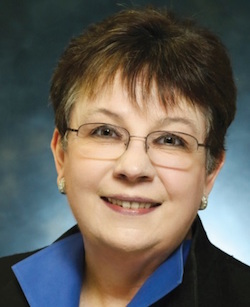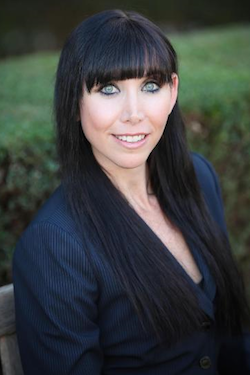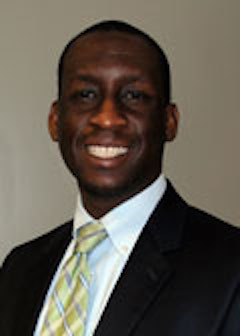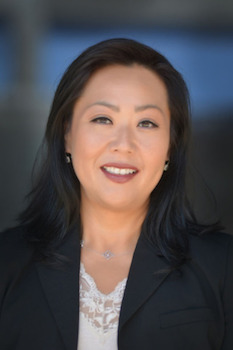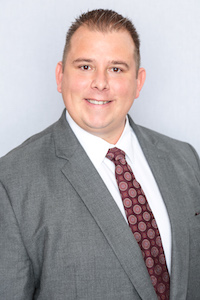Beyond Writing: The Foundations of an Effective Brief
Honey Kessler Amado recently shared her expertise with us in our How to Write a Better Appellate Brief webinar. In this article, she shares some more expertise on the subject!
Our adversarial system is based on the belief that “the fairest results and the best rules of law are discovered by the vigorous presentation of opposing viewpoints.” In trial and appellate advocacy the primary presentation is done through written briefs, which are only as effective as they are helpful. The effective brief requires outlining, writing, and editing, and is grounded in thorough research.
Research identifies the essential elements of the case, which dictate what facts need to be developed in the trial court and emphasized in the appellate brief. Research also identifies the relevant case law, both those cases most factually relevant, which likely will become the core authorities for the arguments, and those directly adverse to the case, which must be discussed and distinguished. And research identifies any “magic language” of an issue which appears repeatedly in published opinions and which, for persuasive advocacy, should appear in the briefs.
This legal foundation helps to frame the core question being presented to the court. Bryan Garner calls the core issue, the “deep issue.” He explains that the deep issue is concrete: it “sums up a case in a nutshell.” Determining the core issue leads to tighter, more cogent writing because it establishes the context for the facts and the arguments. It is especially important to spend time thinking about and crafting a statement of the issue because the one who controls the issue generally prevails! The importance of properly stating the issue raised on appeal cannot be overemphasized. Indeed, some would say that they would take either side of any case as long as they could pick the issues.
The Outline
After the research and conceptualization, the actual writing begins with an outline.
The outline is the blueprint for each section of the brief or memorandum of points and authorities. Writing “off the top of one’s head” leads to circular arguments and redundancy because the writing has begun before the thinking is completed. Justice Thomas Hollenhorst of the California Court of Appeal speaks of some briefs as “whirly-bird briefs” which seem to start in the middle of the story and go in circles or disconnected tangents, giving the court no guidance or direction. An outline prevents such a brief.
The outline should begin with listing the key facts for the Statement of Facts and legal authorities for the Argument – without regard for organization. After this free-floating list is completed, then the order in which to address each point can be determined. The informal listing of the facts and arguments allows for developing ideas from a broad perspective. Related themes and ideas become apparent and enable critical analysis: which cases should be cited for which idea, which ideas are weak or flawed or need further development, and which progression of the facts or arguments would be most persuasive.
The outlining process is where the struggle with the facts and the law is engaged. The outline directs how to tell the story of the case effectively. Which facts should be highlighted, which go first, which must be understood before other facts will make sense, which are irrelevant. For appellate briefs, California Rules of Court require that all factual statements be supported by references to the record. This rule serves two important functions: it enables the court and opposing counsel to verify the factual statements easily, and it “protects the court and opposing counsel from unfounded assertions of fact.” In preparing the outline, counsel should work closely with the record to be scrupulously certain that the factual statements are correct. For pleadings in the trial court, the commitment to stating the facts correctly should be no less scrupulous.
As to the legal argument, the outlining phase is where inconsistent cases can be reconciled and troublesome cases can be distinguished. The outline is where ideas are expanded, such as borrowing from other areas of law to resolve an issue or to suggest how the law might be developed. The outline is where the holes in reasoning are exposed and resolved.
Beware the temptation to take language out of context to make a point. On this, Justice Arthur Gilbert of the California Court of Appeal is compelling. Quoting William Shakespeare, “‘[e]ven ‘[t]he devil can cite scripture for his purpose…,’” Justice Gilbert cautions against misconstruing an opinion to make it applicable to the client’s case. “[S]ome misimpressions are created by the reader or critic who takes a sentence or paragraph from an opinion, sometimes out of context, and analyzes it as a Shakespeare scholar would, or as though it were a verse from Holy Writ, discovering hidden meanings, innuendoes, and subtleties never intended.” As to extending the holding of a case to fit an argument, alluding to the Cheshire Cat of Alice in Wonderland, Justice Gilbert noted, “The reader who distinguishes between facts germane to the holding, and those that are not, can assess the reasonable extensions of the holding. A reader must realistically appraise what he or she reads and resist the temptation to see a grin without a cat. Ultimately this approach is more effective to advance a client’s cause and the cause of justice.”
And beware the temptation to omit an unfavorable case. Counsel have an obligation to cite decisions that are “directly adverse” to any proposition of law that counsel advocates or which would be “reasonably important” to a judge deciding the case. To omit such holdings is a misrepresentation of the law, “tantamount to making a false statement of the law.” The duty to cite adverse authority is part of the attorney’s duty of candor. Candor includes the obligation to disclose legal authorities that the court should consider when making a decision “even when these authorities are adverse to the lawyer’s position.”
Some say that writing is organic. Outlining is a substantial part of that process, perhaps the most creative part; but surely the part that prevents the paralysis induced by the blank page! Writing may be organic, but well-organized, persuasive briefs do not spring up from the pages without careful thinking and planning.
The Drafting
The act of writing – the drafting– begins only when the brainstorming and outlining is complete. The brief or memorandum of points and authorities generally should contain an Introduction, a Statement of Facts, a Legal Argument, and a Conclusion. (An appellate brief should also include a Statement of Issues.) The introduction is a summary of the position presented. It serves to focus the reader. A good introduction should include a very short summary of the critical facts; the core issue, stated explicitly in terms of the pertinent legal rule or requirement, and the answer, applying the relevant rule or rules with a stated reason. The introduction can be a few sentences, but should not be longer than a few paragraphs. A long introduction is likely to contain too much information and will have no context. In effect, the court will be reading in a vacuum, which will squander the court’s attention and patience!
The Statement of Facts should tell “the story” of the case. Everyone enjoys and remembers stories. In telling the story, do not simply string facts together or recite the dry testimony of each witness. Weave a coherent story from the facts, perhaps taking bits from different testimony or evidence. In an appellate brief, barring a specific reason to the contrary, the order in which the facts were presented in the trial need not dictate the way the story is told. Similarly, in preparing legal memoranda for the trial court, the facts can be gleaned from the supporting declarations or deposition transcripts, but need not be told through dry references to each source.
When referencing the parties, first identify them by their positions in the litigation (for example, “plaintiff” in the trial court, “appellant” in the review court) and thereafter use a name or title which is helpful to telling the story. If using an abbreviation, it should be defined in its first use. And use only well-known initial abbreviations, such as BofA for Bank of America or CEO for Chief Executive Officer. Beware of a false economy of abbreviations. Few things are more irritating to a reader or distracting to the story than getting lost in a haze of meaningless abbreviations. If the plaintiff is ABC Hardware Store, which subleased space to XYZ Landscaping, and the defendant is Able Suppliers, it will not take long before ABC is confused with XYZ or with Able and the reading slows as the reader pauses – a second or two – to recall who is who or which is which. It would be clearer and reinforces the parties to use shortened names like “Hardware Store,” “Landscaping,” and “Suppliers.” As the reader of the brief is the court, the reader is the last one who should be distracted, lost, or annoyed!
The Statement of Facts should be objective. Compelling facts should carry the story without vilifying or denigrating the opposition or the lower court. Therefore, avoid “screaming” adjectives and adverbs intended to convey an intensity of feelings or indignation. Such adjectives and adverbs are not persuasive. “[O]verheated rhetoric is unpersuasive and ill-advised. Righteous indignation is no substitute for a well-reasoned argument.” Indeed, courts generally dislike the tenor of such pleadings. “Counsel violates the cardinal rule of effective appellate legal writing when he or she disparages the lower court. Even in zealous advocacy, attorneys are required to maintain respect to the courts of justice.” Similarly, refrain from disparaging opposing counsel or the opposing party. If the facts or challenged rulings are bad, the trial or review court will see that without the colorful adjectives or adverbs pointing the way.
In the declarations or Statement of Facts, use headings to indicate the relevant topic. Headings signal that the topic has changed. When the reader is looking for that point again, the reader can easily find it. Also, headings provide natural white space on the page, giving the reader some relief from what otherwise appears to be dense text.
Similarly, in the Legal Argument, use headnotes to separate the various points in the argument. Good headnotes and sub-headings serve a number of purposes: first, they give the reader cues that aid comprehension. The reader immediately knows the subject or point of the section. Second, headnotes help make a long brief or argument digestible. The reader is not overwhelmed with pages of text, with no visual breaks and no markers indicating a new point.
Third, headnotes assist the writer by exposing organizational weaknesses in the Argument section and by exposing where sections have mixed ideas which need to be treated separately. (Be certain that the argument under the headnote relates to that headnote only, and use sub-sections within a headnote to underscore a discrete point or to signal a sub-topic.) Fourth, headnotes serve as a useful summary of the arguments when set out in the Table of Contents. The reader can quickly and easily see the direction and key elements of the argument from the headnotes and sub-topic headlines.
When addressing a complex topic that has its own jargon, always define the terms and always assume that the reader does not know the subject. Defining terms helps the reader understand the discussion. A simple explanation of the language, concepts, or theories of the topic will add substance to the written discussion.
The Conclusion should state the major points – in a phrase or two – and should state the ruling or relief being sought. For example, “For the reasons stated, that the motion is untimely, that it fails to meet the requirements of the statutes, and that the relief requested is unwarranted, Petitioner requests that Respondent’s motion for reconsideration be denied in entirety.” Or, “For the reasons stated, that the evidence supports the factual findings of the court, that the court considered the required, statutory factors for granting spousal support, and that the amount awarded for spousal support was not an abuse of discretion, Respondent requests that the Order be affirmed in entirety.”
The Editing
The final component of clear, concise writing is editing. This part, like the outlining, can take almost as long as the initial writing! Edit for clarity and organization: do the central points stand out? Does the Statement of Facts tell a coherent story? Does it include unnecessary, extraneous information? If so, eliminate the non-essential points. To paraphrase Anton Checkhov: If the rifle on the wall is not the murder weapon, don’t discuss the rifle. It makes little sense to ask the reader to retain useless information. Does the Legal Argument present consistent arguments? Do they follow a reasoned progression? Are key points buried in words or presented too late in the brief?
Edit for grammar and word usage. Mistakes in this area are irritating and can distract from the effectiveness of the brief. Edit for length. Consider that “[e]ye fatigue and irritability set in well before page 50.” Indeed they do!
The purpose of a brief is to enlighten the court and elucidate the issues. The well-written brief can be the difference between winning and losing. It leans towards winning when it is a pleasure to read.


